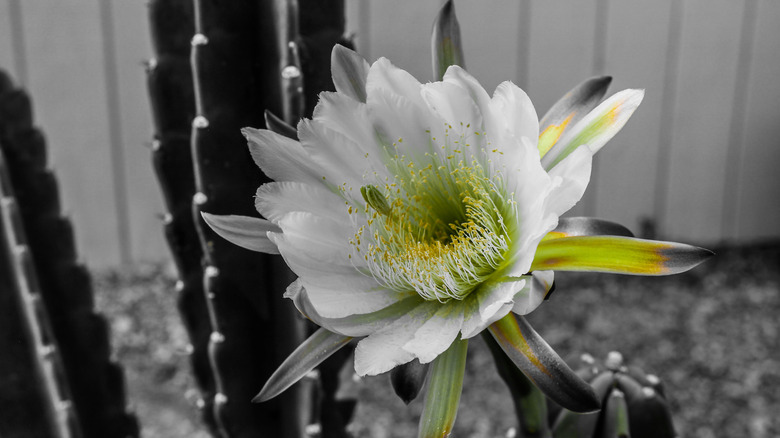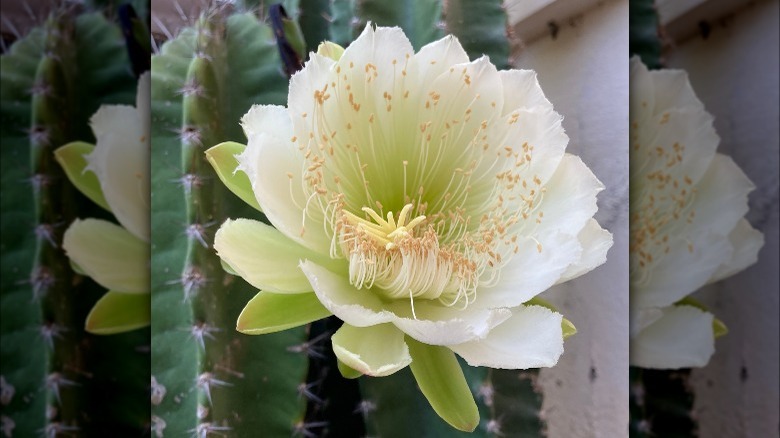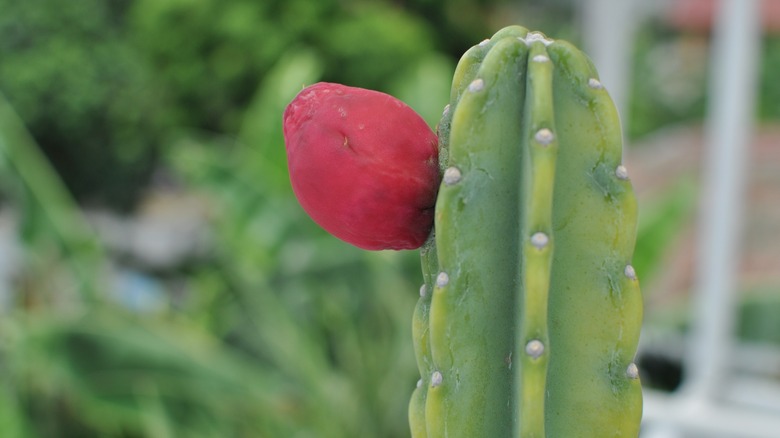Peruvian Apple Cactus: How To Watch It Bloom Only One Night A Year
Cactuses are great indoor and outdoor plants for their unique appearance, low-maintenance needs, and the rare chance to see gorgeous blooms. Many cactus varieties have unique flowering patterns, like the multitude of night-blooming cacti. One variety, though, only blooms once a year during a very tiny window.
The Peruvian apple cactus (Cereus repandus) gets its common name from the fruits that grow on the stem, also known as pitaya, which is completely edible. However, it also has fame in the gardening world for its rare and gorgeous blooms. These cactuses only sprout a flower once a year in the late spring at night and only for a few hours. Properly caring for the plant, as well as monitoring it closely for potential buds during its blooming season, are ways to predict this once-a-year occasion. Luckily, Peruvian apple cactuses aren't that different from standard cacti when it comes to care and upkeep.
Waiting game
If you have a healthy and mature Peruvian apple cactus, expect it to bloom. Their flowers can appear anywhere from June to August, so as you get closer to that window, keep a close eye on the plant. There should be the usual tells that it's ready to flower, like growing buds. Local pollinators may start making frequent trips, too — particularly bats and moths.
Now all that's left is to wait and see. They're nocturnal bloomers, so if you suspect they may begin to unfurl, make frequent trips throughout the night to check in on the plant's condition. They usually tend to bloom right before the dawn breaks, and their flowers will live for just a few hours afterward, so factor that into your bloom watch. The flower is a soft, creamy white with expansive petals and will attract plenty of pollinators to help the plant grow its signature fruit.
Caring for the Peruvian apple cactus
Peruvian apple cactuses can be grown indoors and out, but you'll have a better chance to see blooming and fruit production if cultivated as close to their native growing conditions as possible. They grow best in USDA hardiness zones 9 through 11, which include southern Florida and California. If you live somewhere colder, keep them in pots; you can move indoors when the weather cools. They also prefer tons of bright, direct sun.
Water frequently, even more so as the cactus approaches its blooming season. Remember that cactuses store water for much longer periods than other plants, so don't go too overboard. They should also be kept humid for ideal blooming conditions, anywhere from 30% to 50%. You can also encourage a quick-growing and healthy plant with a cactus-specific fertilizer — a bloom-enhancing option specifically — applied in the spring and summer, which will also help stimulate a healthy bloom.


